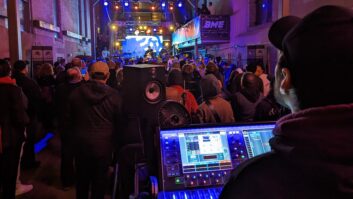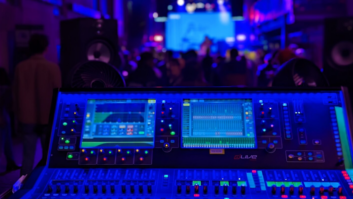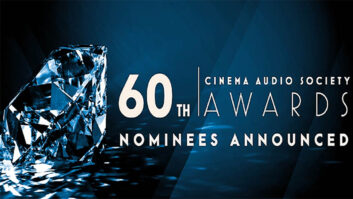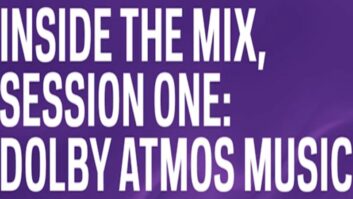Ex’pression College’s Spencer Nilsen: “We are educating the new Renaissance artists.”
You started out on piano, turned to composition, then built audio studios for Sega back in the ’90s, and now you’re president/creative director at Ex’pression College. Did you expect this career path?
Not exactly this one, but it all seems to make sense now. [Laughs] I started on piano when I was 5, and that was my toy box. I wrote and played all the time, and was a session keyboardist in my late teen years. I then started doing some scoring work and got introduced to the early Sega games—I did Sonic the Hedgehog CD, Ecco the Dolphin, Batman Returns, NFL—and was later asked to run their audio division and build out three studios. I had extensive MIDI experience. We were using the GEMS tool then with 8-bit audio and very little space. But we saw the CD-ROM machines coming and saw that there was tons of opportunity ahead. So I kept writing. And I still do.
But I’ve always loved the academic environment, and I was introduced to Ex’pression by David Schwartz, actually, the founder of Mix, and served as a consultant after they opened around 2000. I came on full time as a program director in 2003 and became president in 2006.
Okay, jump-cut to today: 24-bit audio, multichannel playback. Do you see a similar opportunity ahead with new delivery formats for audio?
I do. The field of interactive audio is simply more fun today. It’s no longer rocket science to incorporate quality audio into any form of new media, whether games or smartphones. All of our handheld devices, all of our communication tools have an audio component. For our students, that means the field is so much bigger now than it was when I went through school or when I worked at Sega. Now interactive audio means everything from the standard impact sounds and roll-overs and action sequences in a game, to live translations of something streaming to your smartphone from a political convention in multiple languages. It can be used in scientific visualization. There’s the use of audio in forensics—all kinds of areas where audio is being used to teach, to explain. And again, the tools have become so accessible. The tools to create audio for the smartphones are intelligent; they resemble the tools we use in standard audio production for records and films and that sort of thing. And the line is blurred now between the tools used by an engineer who produces high-quality audio for professional entertainment and the tools used by people designing audio for handhelds, instructional materials and stuff like that.
Do students entering Ex’pression understand that range of audio careers today?
We definitely have fewer students today than 10 years ago who expect to sit behind a large console and record a rock band. They see themselves as entrepreneurs, and they are conversant in video formats, in game design, animation, motion graphics—all the areas we teach. They have the vernacular and they are more educated from a consumer standpoint about good vs. bad audio. And they speak cross-platform, cross-discipline. In the audio program specifically, our students are not only learning the entire pipeline of audio production, but they’re getting a view of multiple emerging markets that require audio to communicate, whatever the message or format. It’s exciting today because a young artist can support themselves if they are energetic and forward-thinking. We feel, essentially, that we are educating the new Renaissance artists. Without overstating it, this is an age in technology akin to the age of Da Vinci or Michelangelo.
These are, to use Apple’s term, the Digital Natives.
Absolutely. And they come in today with a greater understanding of technology in their everyday life. But what’s most interesting to me is that I am seeing this return to subtlety. They’re more selective, more quality-oriented. They’ve acquired different skill sets, and the tools they’re using, whether in audio or game design, have become so advanced that it really does free them up to be creative. That’s something [producer] Jack Douglas stresses each semester in his classes, the simplicity and the subtlety.
We try to tell our students every day that storytelling is the key. I realize that may sound cliché, but it’s absolutely true. In film, a compelling score creates the mood; in games, sounds can be a precursor to action, a trigger with an emphasis and the ability to manipulate. But the best sounds in the world won’t even be heard without a strong concept, a strong story. And that applies whether you’re producing a song, a film, a game or a Webisode.
Tom Kenny is the editorial director of
Mix
magazine.







